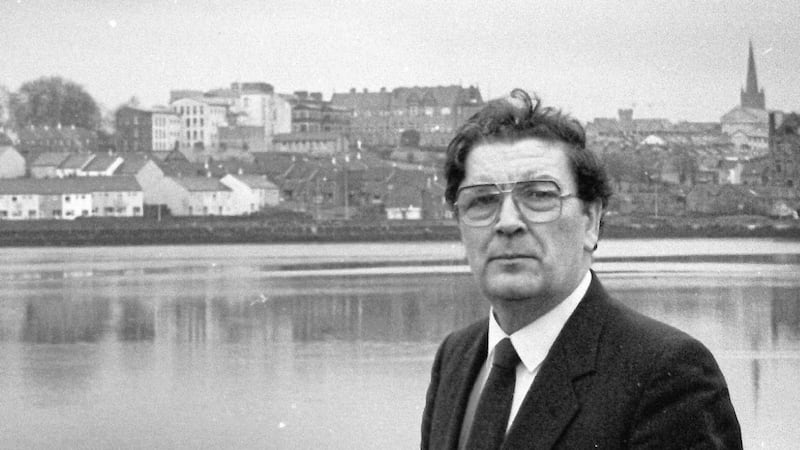My goodness me, doesn't time fly? Today is the 40th anniversary of John Hume's first full day as leader of the SDLP.
He took over when Gerry Fitt stepped down after the party backed away from an invitation by Secretary of State Humphrey Atkins to take part in a Constitutional Conference with the UUP, DUP and Alliance to discuss a political settlement.
Five years after the collapse of the Sunningdale project - and a few months after Ian Paisley had topped the poll in the first Euro election, with almost 30 per cent, the party conference in early November had decided that it was up to the British and Irish governments, rather than the local parties, to take the lead in establishing the template for a new settlement.
There had been growing tensions between Fitt - who had led the party since its foundation in August 1970 - and key members of the leadership team for over a year; and those tensions were really heightened after Hume won the second MEP seat in June 1979, with the SDLP's highest ever share of the vote (24.6 per cent) and more votes than the two UUP candidates combined.
Fitt was also concerned by what he was later to describe as the tendency of the party to become less socialist and 'more green nationalist.' Fitt resigned on November 22, 1979 and Hume became leader on November 28, a position he held until November 2001.
To say that John Hume was the SDLP is an understatement. I can't imagine anyone else in the party during that period - and there was a lot of talent within its leadership group - who would have proved as influential and inventive. That's not to say that he always steered it in the right direction: his opening of doors to Gerry Adams in both 1988 and 1983 may have been intended to achieve SF/IRA buy-in to British neutrality and another route to unity for republicanism, but it ended with Sinn Féin eclipsing the SDLP, taking huge chunks of the nationalist vote and sweeping up Assembly, Westminster and local government seats.
The other thing about Hume is that he didn't, I think, ever understand or even try to understand unionism. I was never convinced that he was ever truly serious about making Northern Ireland work as a political entity and always seemed keener to build bridges with political players in London, Dublin, Washington and Brussels (and elsewhere) rather than building them in Belfast with pro-Union players who might have been able to bend significant ears across the unionist community.
He was always an intelligent, articulate, thoughtful man, capable of great personal charm and strategic vision, yet I think very few unionists ever really saw that side of him. And once the Hume-Adams talks became public knowledge very few unionists - even from the more liberal and moderate wings - disagreed with John Taylor's description of them as evidence of a 'pan-nationalist front.'
But in the same way that the Good Friday Agreement would probably never have been negotiated, let alone concluded, had David Trimble not won the UUP leadership in 1995 (because I don't think any other unionist leader would have taken as many risks or put up with as much internal criticism), I'm pretty sure it wouldn't have happened if Hume hadn't been the lead figure within nationalism.
He must have known--and I certainly remember a very senior SDLP negotiator mentioning it to me at the time - that the SDLP might take an electoral hit because of the Agreement, but it didn't stop him from pushing ahead; and nor did it deter him from making sure Sinn Féin was never allowed to feel sidelined - even as he criticised it for obstruction for 'failing to recognise the need for an Assembly to monitor North-South bodies.'
When he stood down in 2001, after 22 years as leader, he had already been showered with prizes (including the Nobel Peace Prize) and international accolades. He left his party in reasonably good shape and provided a template for a peace/political process; albeit one which is struggling to cope with the changes (mostly unhelpful) inflicted upon it by others. It's very hard to imagine what the politics of Northern Ireland would have looked like now without his input.
I think it was Brian Faulkner who, during the Sunningdale negotiations, described Hume as the 'one to watch.' He was right.








